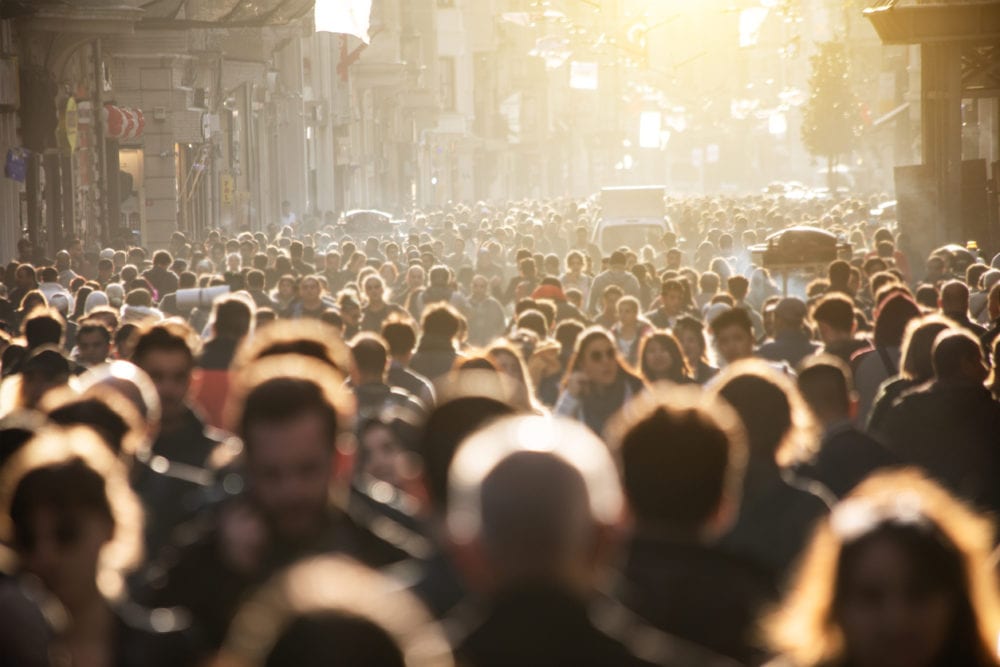As countries like New Zealand and Australia begin to ease out of lockdown restrictions and businesses start to reopen, many people are facing a new struggle: FOGO, the fear of going out.
In a recent interview with MiNDFOOD Editor-in-Chief, Michael McHugh, Psychiatrist Dr Steve Ellen says that the combination of incredible uncertainties and heightened communication has left everyone anxious and stressed.
“The sense of anxiety is extremely heightened at the moment because no-one knows what is going to happen,” he explains. “The overwhelming theme is uncertainty because we don’t know where we are heading.”
“This incredible mix of emotions is a very strange experience and no one knows the answers.”
Adjusting to a new normal
Adjusting to lockdown was incredibly tough for many people, but for many of us, it did offer a sense of safety.
Now, as the shops fill up with customers and traffic returns to the roads, it can prove a tough adjustment returning to public and being around people, especially while trying to keep up social distancing.
The anxiety we may be experiencing as we return to society can be looked at through the lens of agoraphobia, explains Dr Alice E Schluger in Psychology Today.
“Agoraphobia is a specific type of phobia pertaining to an actual or anticipated situation that is perceived as difficult or impossible to escape. It may encompass a fear of being outside alone, standing in line, being in a crowd, or being in either open or enclosed spaces,” explains Dr Schluger.
“FOGO has taken on a whole new meaning during the COVID-19 pandemic. We are constantly bombarded with warnings from the media about staying inside as much as possible to control the spread of the disease,” she says.
“If you decide to go outside for a walk or a run, it’s tricky to keep the proper distance from other people,” she adds. “What’s the best time to go out? Is it safe to sit on a park bench? Where can I walk the dog? Endless questions …but few definitive answers.”
“FOGO in a broad sense is a real phenomenon when it becomes synonymous with a perceived threat. This also ties in with risk perceptions and how vulnerable we feel we are to this disease,” says Dr Schluger.
Understanding the risks
In his podcast Shrink The Virus with MiNDFOOD writer and psychologist, Dr Rob Selzer, Dr Ellen says understanding the risks can help us shift our perspective and fear of going out.
“One of the things that strikes me when we come out of iso is that there is enormous fear in the community,” says Dr Ellen. “It’s important to realise that a lot of it is confusion and uncertainty, because we don’t know where we are.”
“The new normal really means how do we deal with our anxieties and concerns facing this illness that’s going to travel through our community over the next couple of years,” he explains.
“We’re misunderstanding the risks, we’re overly worried about catching Covid the disease, rather than the overall effects of the pandemic, meaning the effects on society.”
“Whilst the treatment of Covid is to stay locked away… for the average punter who hasn’t got a preexisting disease or who isn’t elderly, you are far bigger risk hiding away from Covid than contributing to rebuilding our society to ensure that the economy doesn’t fall over,” says Dr Ellen.
“Yes we want to delay the spread, but it can’t be at the cost of allowing the fabric of our society…falling away. We have to live with this illness, like the flu,” he continues.
Dealing with the fear of going out
While this new anxiety about returning to society may not be the same as agoraphobia, it may be helpful for some people to read up on how to deal with this specific fear.
Health Navigator New Zealand lays out some self-care advice for people struggling with agoraphobia:
- Tell the people you trust about your agoraphobia and stay in touch with them.
- If your agoraphobia is mild, it’s important that you face your fear by going out often, so that the fear doesn’t grow. The more often we let a fear stop us from doing something, the harder it is to do it the next time. The key is to feel the fear and do it anyway.
- If your agoraphobia is stronger, you can ask family/whānau and friends to come with you when you go out. Let them know in advance that you might have to wait for a panic attack to pass, or even go home so that you feel less pressured or embarrassed if that happens.
- Learn how to reduce panic and anxiety through relaxation techniques and mindfulness.
- Exercise can help. If you can go outside, walk each day, especially in a natural environment. If you are housebound, it’s still important to move as much as possible.
- A healthy diet supports you to manage your stress well.




